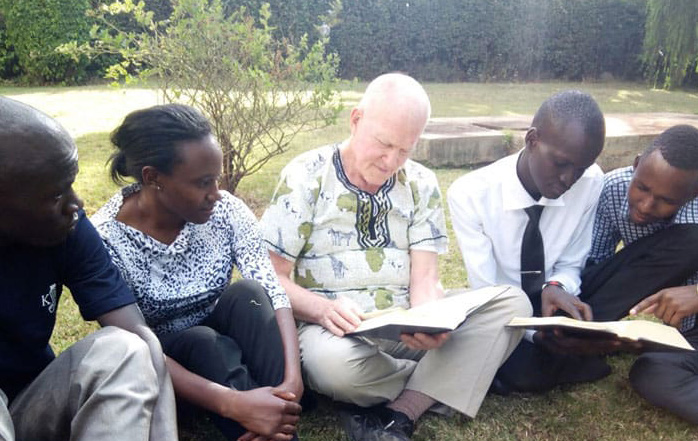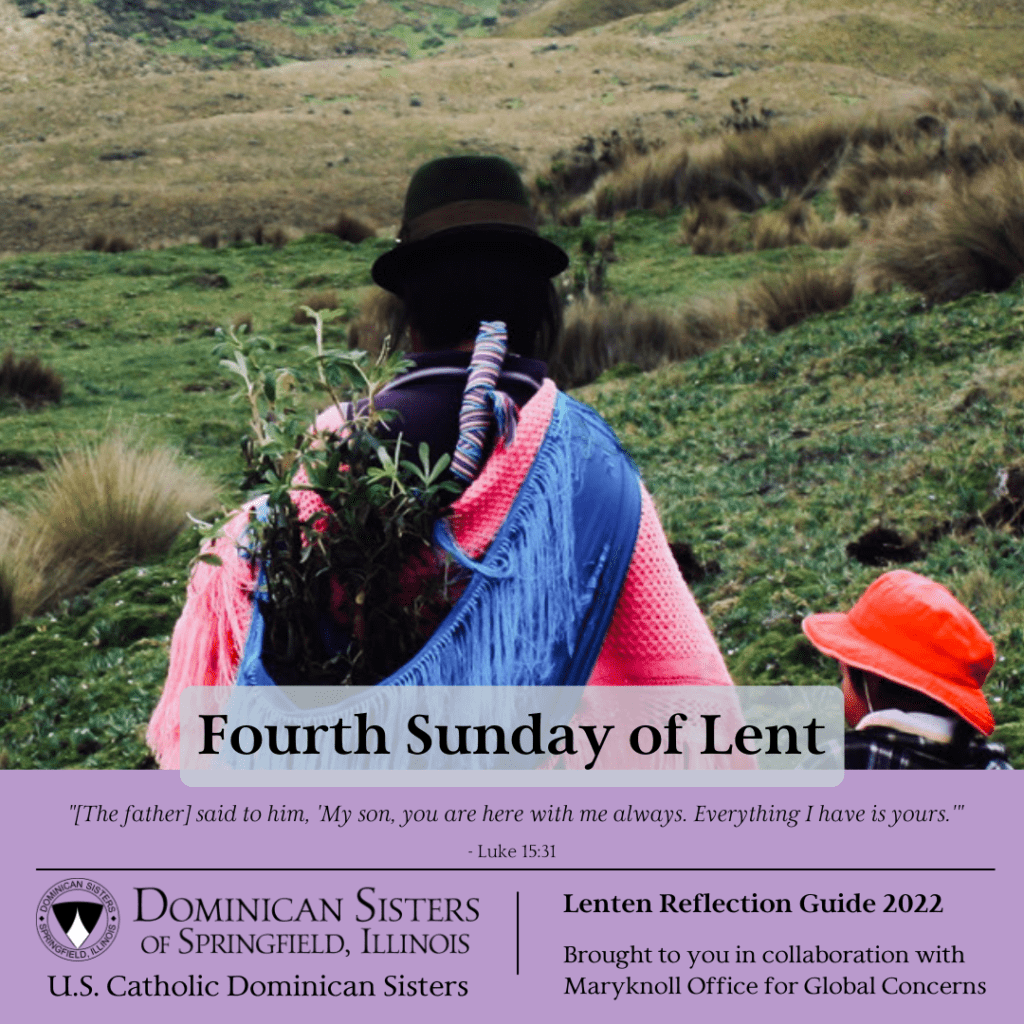“[The father] said to him, ‘My son, you are here with me always. Everything I have is yours.” - Luke 15: 31
For the fourth Sunday of Lent, we hear the powerful parable of the Prodigal Son. In this parable, the younger of two sons takes and squanders his inheritance. On returning home, he expects to be scorned by his father for his behavior, but his father welcomes him with open arms. In response to the jealous, well-behaved older brother, the father explains that everything he owns belongs to both his children.
This parable speaks to the open-hearted abundance and generosity of God. “Everything I have is yours,” the father says.
God has given us the remarkable capacity to be stewards or caregivers of our fellow creatures, to love and honor the gifts of the Earth. But, in the modern world, so often we are irresponsible with what we have been given, destroying what is good and beautiful for the sake of profit, comfort, and convenience. Because our economy in the global North is set up to take endlessly from the Earth without concern over its limits, we live our lives unconsciously contributing to its destruction.
What is the answer? Can we break free from these cycles that trap us in a destructive relationship with the Earth and those who depend on it? Can the voice of God’s mercy, as we hear represented by the father in today’s parable, move us to change our behavior?
Maryknoll Sister Patricia Ryan is president of the Association for Human Rights and the Environment (DHUMA) in Puno, Peru, an organization of Quechua and Aymara Indigenous working to protect their land rights from extractive industries which exploit the natural environment they have stewarded for centuries.
Sister Ryan describes the destruction witnessed by Indigenous communities: “ [The Aymara community members said], ‘Please come with us. We want to show you the river.’ We get to a point where you see the river; it’s all contaminated. There’s no doubt that it’s coming from the contamination caused by the mine. Then they tell me about their cattle dying from the mine. This is their livelihood. There’s not only no development brought in by this mine, but no respect for the rights of the people, no respect for Mother Earth. The mine is contaminating the water and causing death to the livestock, which is the livelihood of the communities, and causing sickness and death to the Indigenous peoples.
…The rights of Indigenous peoples must be respected as stipulated in [the UN Convention enshrining Indigenous rights] and the rights of Mother Earth, especially water, must be held sacred. Any profit produced must be distributed equitably, especially in benefit of local, regional and national basic needs and any extractive activity must assure true sustainable development.”
Today, may the voice of the father in the parable remind us of God’s abundant generosity in inviting us to be caregivers of the Earth. May we remember that the gifts of earth are belong equally to all persons, and that all created life is sacred.
Questions for Reflection
- Where have you witnessed God’s abundant generosity?
- How can you take up the invitation to responsibly care for creation?
Living Lent
Pray
God of all creation,
How splendid and majestic is the world you created! It reveals your glory; it teaches us about you.
When you made us in your image, you gave us this command: care for the world and for all the creatures in it, for this is our common home.
Yet your holy creation cries out, for our home is “burdened and laid waste,” scorched and scarred. Come among us that we might remember our interdependence.
Let us see the face of your Son in those who suffer from the destruction of our common home. Help us to be stewards who honor you in the world you have made for the good of all creation and for future generations.
May your justice reign forever! Amen.
-From the Querida Amazonia Study Guide by the U.S. Conference of Catholic Bishops
Fast
Consider letting go of habits that prevent you from listening without being defensive and speaking without judgement.
Faith in Action
Ask your Senators and Representative to support the FOREST Act of 2021, which would help prevent
illegal deforestation and the rights of Indigenous communities by tapping the button below.
Maryknoll Mission Experience

“There are 50,000 small Christian communities in Kenya. Different from America, the small Christian communities in Kenya are neighborhood communities, families and neighbors meeting together weekly for prayer. My small community is called St. Kizito, in Nairobi, that’s named after one of the Ugandan martyrs. We are very environment conscious and tuned into ecology. We have been planting trees in the neighborhood. Many people will remember the Kenyan woman who won the Noble Peace Prize for planting trees. We also are involved with cleaning the garbage dumps in the neighborhood. For those of you who have been to countries in the Global South, you know what garbage dumps are like. So why not do it with the unity of the small Christian community? Our final and favorite action is promoting a ban on certain kinds of plastics in Kenya. In fact, Kenya is one of the leaders of the world on this.
“In Africa we like proverbs and one of our favorites is from the Kikuyu people in Kenya, the largest ethnic group, and it says “You must treat the earth well. It was not given to you by your parents. It is loaned to you by your children.”
-FATHER JOSEPH HEALEY
Maryknoll Fathers and Brothers
(Center in picture, Kenya)
Fourth Sunday of Lent: Photo of Indigenous woman and child available on Unsplash:
https://unsplash.com/photos/F3BBLFml5Hw.
Photo of Fr. Joe Healey, MM, courtesy of Maryknoll Fathers and Brothers: https://bit.ly/3sEhuW4.


